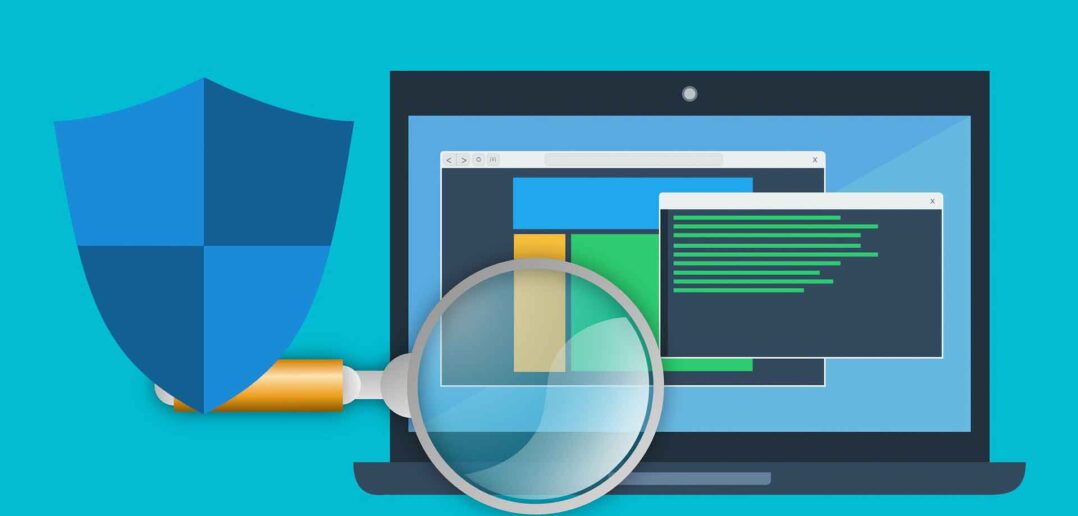Computer viruses and malware are both things that you need to be conscious of as part of owning a computer. It seems everyone has had to deal with some sort of malware infection at some point in their computing life.
However with Microsoft Windows now coming with Windows Defender by default and claims of other operating systems being more resistant to malware, you may be wondering whether you should continue to invest in third-party software to offer additional protection for their system.
I hope to try and provide some clarity on this for you so you can make a decision about whether you should invest in this software.
Limitations of Antivirus Software
There is one important thing that doesn’t get discussed when talking about antivirus software. Whichever antivirus solution you choose to go for, you can be sure that you are getting some level of additional protection against computer viruses, malware and potentially other security issues. However you should consider them a “last line of defence” against this type of threat.
By this I should mean that you should always be practising “good computer hygiene” when it comes to protecting yourself from malware. This can include avoiding pirated software, identifying trusted sources to obtain legitimate software, not opening suspicious email attachments, being able to identify phishing emails to avoid following malicious links, and making sure any security patches are installed when they become available.
While these tips won’t necessarily protect you 100% of the time, they do help to reduce the risk of an infection by preventing one from ever making it your machine. Antivirus software should really be considered as a way of protecting you from making a mistake or for the rare situations where good computer hygiene might still fail you. The old adage of “prevention is better than cure” applies here – this is not to say that antivirus software is not useful, more that it is better to prevent the malware from ever making it to your machine than rely on software to detect it once it arrives.
So what about Windows Defender?
Most of us run some version of Microsoft Windows on our computers. Various versions of Windows have a little over an 87% market share for desktop computers and laptops. This makes it a very lucrative target for malware.
It is for this reason that Microsoft began releasing Windows Defender starting in the days of Windows Vista. This initially provided very primitive tool to prevent malware protection, however has in more recent years become more a general purpose antivirus tool as well.
Windows Defender has become progressively better at preventing malware and virus infections as newer versions are released. The newer versions detect malware and viruses far more reliably than the earlier versions, though there is still a way to go. However it is still somewhat of a basic option. It’s designed to be “good enough for basic use”, and a decent antivirus package will usually offer significant additional functionality above what Windows Defender has to offer, allowing for better protection in some circumstances and often more control over how malware is dealt with once found.
What additional functionality will third-party software provide?
This will depend on the particular package that you choose to use. There are two vendors I tend to consider when making an assessment, those being Kaspersky and Trend Micro. The reasons I tend to gravitate towards these two is that when I do checks of various antivirus test sites they both provide consistently high level of malware detection, and my experience with both of them is that they offer this protection without a massive performance hit.
To use Kaspersky as an example, there are various different levels of protection at different price points, including a Free package known as Kaspersky Security Cloud.. The free package, which uses the same antivirus engine as the rest of the line up, offers basic antivirus and malware protection. The paid antivirus adds additional protection against phishing attempts.
Upgrading further to the Internet Security allows you to access ad blocking, additional protection to reduce the risk of your webcam and microphone are accessed remotely, and parental controls to help control a child’s screen time and reduce the risk of them accessing adult content. This also includes a firewall that includes improved functionality over the standard Windows firewall.
Of course, other vendors such as Trend Micro also offer different functionality as well. This functionality, and the fact that you typically have a lot more control over how it is configured compared to Windows Defender, can make a premium third-party offering a worthwhile investment. As mentioned above, this should not replace good computing practises, but they still offer additional ways to protect yourself.
What about using another operating system?
There are those that claim you are better protected on a Macintosh or a Linux system. There is a certain amount of truth to this. For instance there is very little malware that targets the Linux operating system at this time. It was also once said that Apple users did not need antivirus and the amount of malware currently targeting the Macintosh platform is a lot lower.
However, just because an operating system is less of a target doesn’t mean you can ignore the threat. Back in 2012, a lot of people very quickly retracted the line that Macs don’t need antivirus when the Flashback worm infected half a million Macs in a 24 hour period. It may be less likely to happen on some of these platforms, but it’s not impossible. For this reason, you should still continue to practise good computer hygiene, as well as look at what solutions are available for your platform to offer additional protection.
Verdict
Having an antivirus solution available to you is important. Malware and viruses are unfortunately a constant threat in our modern world. While it’s not a substitute for being a little proactive to avoid the threat, having an antivirus solution installed as a last line of defence is a great way to protect against inadvertent mistakes or somehow finding yourself on the strange part of the Internet.
If you’re confident in your ability to practise good computer hygiene that avoids the risks before they make it to your machine, then the options that came with your machine such as Windows Defender are not as bad as they used to be.
If you’re not so confident in your ability to practise good computer hygiene, or are looking for additional functionality or control over how this software functions, third-party options can be a good addition. You’ll want to look for software that offers good protection against malware and viruses, with low resource utilisation.



